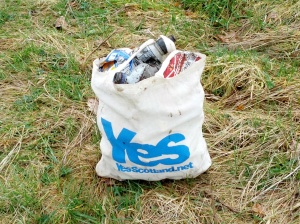As children we have a sense of fairness:
it’s not right that someone should get something while others go without
As young people we have real sense of justice
(despite “whatever!”)
But what happens when we “grow up”?
Do we abandon the sense that we are all equal?
As we prepare for the referendum in September, we are challenged to think again about what we want for our country.
Is it right that 1,000 people own 60 per cent of Scottish land? (1)
Is it right that we have record-breaking levels of child poverty?
Is it right that the average lifespan in parts of Glasgow is 57?
i.e. were I from there I could already be dead
Another possibility
 “All of us first” is the motto for the Common Weal project, set up by the Jimmy Reid Foundation, named after a man who worked tirelessly for social justice. As opposed to the “me first” of neoliberalism, as exemplified by the first-past-the-post pseudo-democracy of Westminster politics, “all of us first” is exploring ways to put these matters right.
“All of us first” is the motto for the Common Weal project, set up by the Jimmy Reid Foundation, named after a man who worked tirelessly for social justice. As opposed to the “me first” of neoliberalism, as exemplified by the first-past-the-post pseudo-democracy of Westminster politics, “all of us first” is exploring ways to put these matters right.
These include:
- Creating a more equal society
- How to have government by the people
- How we can pay for great public services
- Why universal public services benefit everyone
- How public buying power can work for us
- How childcare grows our economy
- How to take our energy back
- The way to end poverty
- How to restore local democracy
This all requires guts and determination to set aside our own interests (at least some of the time!) so that others might live. Truly live, not just exist.
Real equality,
not just some slogan
(Liz Lochhead for Common Weal)
1. Riddoch, Lesley (2013-08-26). Blossom: What Scotland Needs to Flourish (Viewpoints) (Kindle Locations 77-78). Luath Press Ltd. Kindle Edition

You must be logged in to post a comment.